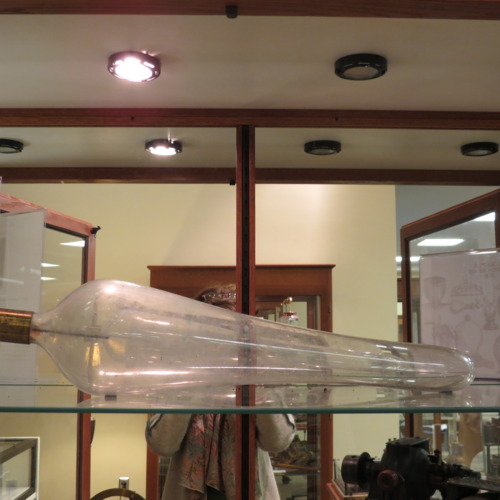Fountain in a Vacuum
Title
Subject
Description
"The “Fountain in Vacuo” is a perfectly delightful and entertaining 19th century demonstration that is never done today. Volume 1 of Pike’s Illustrated Catalogue of Optical, Mathematical and Philosophical Instruments (New York, 1856) describes it, “The fountain consists of a tall receiver, of glass, about five inches wide in the swell, but contracted at the top, and cemented by a neck at the lower end to a brass cap, having within a jet pipe attached to a stop-cock, which screws into the cap; the whole is mounted on a stand when not in use. To use, the fountain is connected with the air pump by means of the stop-cock and tube; after the air is exhausted out of the receiver, the cock is shut to prevent its return; then the whole is unscrewed from the plate of the receiver, and the lower end of the tub is immersed in a vessel of water; on opening the stop-cock, the pressure of the atmosphere on the surface of the water in the vessel having not counterpoise from the interior of the cylinder, forces up the fluid through the jet-pipe with considerable velocity, which forms a pleasing jet-d’eau, or fountain in vacuo. Price $4.50; larger $5.00”.
from: Thomas B. Greenslade, Jr., "Demonstrations With a Vacuum: Old Demonstrations For New Vacuum Pumps", The Physics Teacher, 27, 332-341 (1989)
